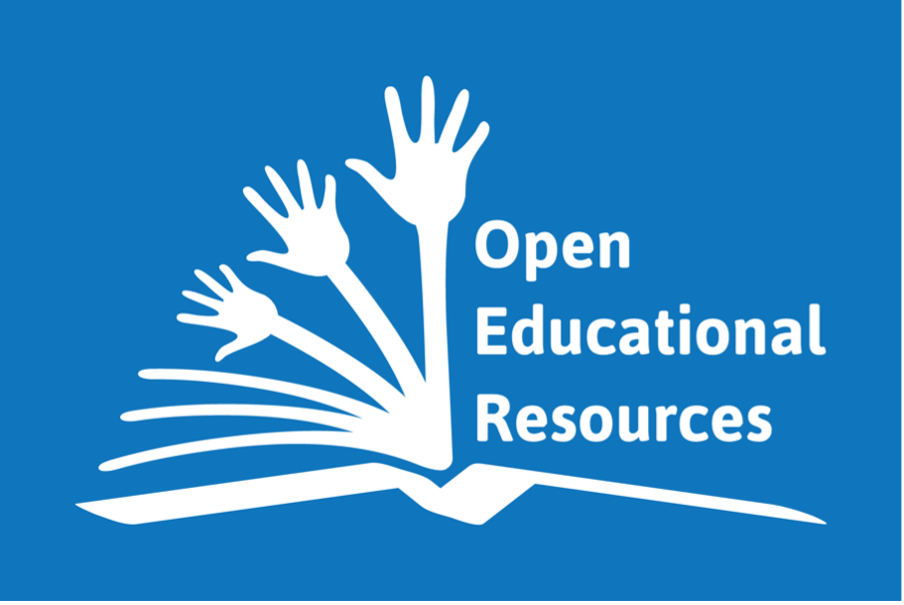
The UNE Library is calling for Expressions of Interest from staff to develop or remix an open textbook.
An open textbook is a type of Open Educational Resource (OER), which is free of cost to use, and can be freely copied and distributed under one of the Creative Commons licences. Many open textbooks can be modified, adapted, improved, or built on, in line with the relevant licence conditions.
Open textbooks provide flexibility to make instructional material relevant to your unit, local context and students. Imagine being able to embed assessment items or activities in an interactive manner throughout a textbook? You may want the flexibility to update the open textbook to respond immediately to developments in your field. Imagine pairing the traditional concept of a text-based book with videos and interactive simulations in a single, digital resource?
The UNE Library is participating in the CAUL OER Collective pilot, which provides institutions the opportunity to publish two open textbooks written by their authors, on the Pressbooks platform in 2022. Authors will be provided with training, resources and ongoing support throughout the publishing workflow process. There can be multiple authors per textbook, and authors should complete one EOI form per open textbook proposal.
The UNE Library spoke to Associate Professor Mitch Parkes, Director, Academic Development at Education Futures and one of UNE’s OER champions. In this interview, he explains the benefits of using open textbooks, why an academic may want to develop and use an open textbook, and provides useful tips for educators who want to apply to develop an open textbook under the pilot.
Why would someone want to develop and use an open textbook?
Open textbooks are developed based on the conviction that educational content should be open and free. Educators can take a principled approach in choosing to use an open textbook, and in doing so, help reduce the financial burden on their students. Depending upon the licence, content in an open textbook can be reused, revised, remixed, and redistributed. This provides open textbooks with greater flexibility and utility than textbooks from commercial publishers. Developing an open textbook can also provide increased exposure for one’s work particularly in topics or disciplines that might not be considered by commercial publishers as being a worthwhile return on investment.
What are some challenges with using traditional, commercial textbooks that open textbooks solve?
The cost of commercial textbooks is a major challenge for many students. So much so, in the US, the State of California committed $115 million in the expansion of the Zero Textbook cost program at the state’s community colleges last year. Textbook affordability is a challenge faced by students globally. Open textbooks are free of cost to students, as well as institutional libraries who don’t have to pay for copies in print or electronic form. Under current Australian copyright law, educational institutions are restricted in how much they can copy from a textbook and make available to students online. Even in electronic form, some eBooks have limited user licences, meaning in some instances, only a handful of students can access an eBook at the one time.
Open textbooks licensed under any of the six Creative Commons licences can, at a minimum, be freely copied and distributed – be it parts of the book, or the even the whole book. Open textbooks maximise accessibility because they can be copied and distributed in any format. In this sense, open textbooks live up to their description – they are ‘open’ because they are free of cost, and free to use and re-use under specific conditions.
The pilot duration is 12 months. What approach could an educator who is interested in applying for the pilot take to get an open textbook on the Pressbooks platform?
Adrian Stagg (2014) at the University of Southern Queensland, identifies several ways of developing an open textbook:
- Original Sharing – an original authored textbook is openly licenced and shared with others
- Passive Remix – a single item is identified which aligns well (but not completely) to the learning and teaching needs, and the decision is made to localise the content
- Active Remix – multiple open resources are blended into a new open textbook
- Developing (Student co-creation) – open collaboration with students to produce an open textbook
For the open textbook pilot, either a passive or active remix would be the best approach. This will provide authors with a good introduction to some of the key principles of open authorship while providing students with an open textbook aligned with their learning needs and context.
How would an educator who has never engaged with an open textbook evaluate such a book?
Many open textbooks are peer reviewed, as is the case with OpenStax open textbooks. The OER Collective pilot will incorporate a peer-review process into the publishing workflow. This level of openness is part and parcel of being an open resource.
Open textbooks can be evaluated by asking questions about the textbook’s relevance to curriculum, its ease of use, suitability for their student’s level, and accessibility. In other words, evaluation should be approached in the same way as one would evaluate a commercial textbook.
As far as quality is concerned, open textbooks are created and reviewed by educators who are experts in their field or subject matter. As the open movement has advanced, many open textbooks are published through university publishing divisions, or other quality platforms such as Open Textbook Library, OpenStax, BC Campus OpenEd, plus many more.
From my perspective, open textbooks are win/win/win – a win for students, a win for authors, and a win for UNE. So, if you are thinking about dipping your toe into the pool of open publishing, the CAUL OER Collective pilot program is the perfect way to start.
For more information about the pilot, where to find existing open textbooks, Pressbook features, and how to submit an EOI, please visit the UNE OER Collective pilot guide.
Questions? Please contact serials@une.edu.au.
